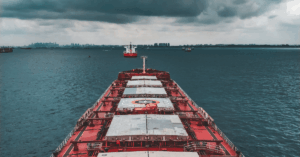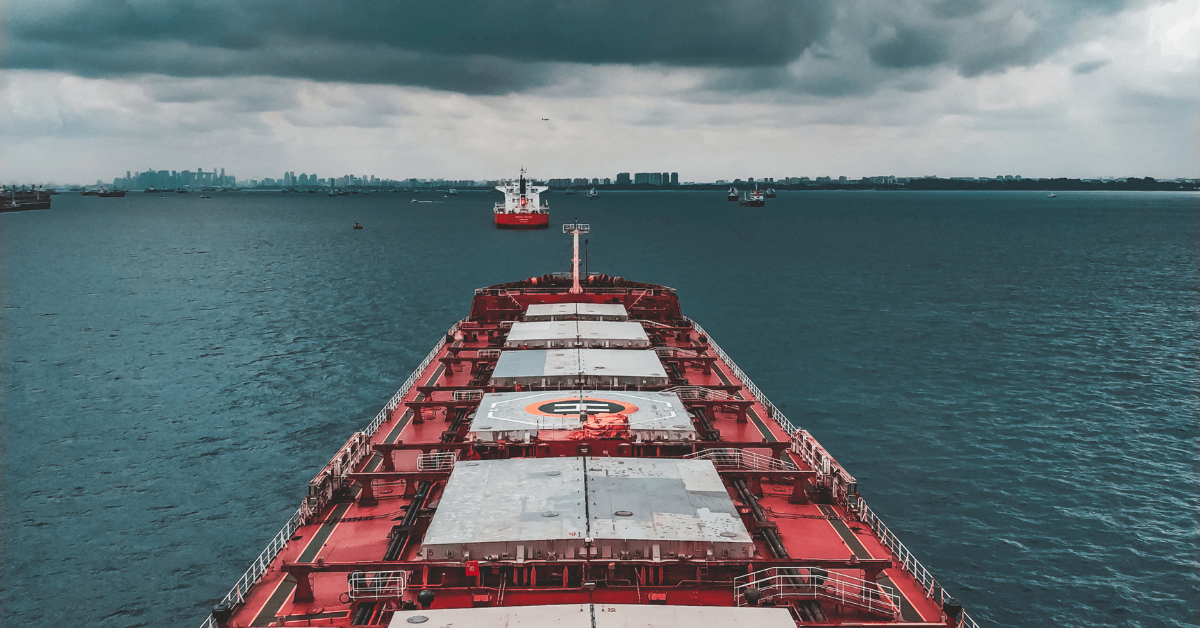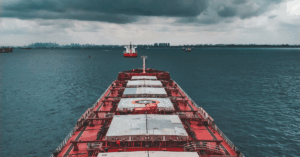
YANMAR Slashes NOx Emissions By 90% With New SCR System For 6LY Engines
July 11, 2025
Saudi Arabia Reveals Its First-Ever Cruise Ship Regulations To Boost Red Sea Tourism
July 12, 2025

Some commercial ships passing through the Red Sea have started broadcasting messages on their public tracking systems, declaring their crew’s religion and nationality to avoid being attacked by Yemen’s Houthi rebels.
The Red Sea is an important route for transporting oil and other goods, but the number of ships passing through it has dropped sharply since the Houthis began launching attacks in November 2023. The rebel group, which is backed by Iran, has said its attacks are in support of Palestinians during the ongoing war in Gaza.
This week, the Houthis attacked and sank two commercial vessels after a long gap of no major incidents. Following this, their leader, Abdul Malik al-Houthi, repeated that any ship or company linked to Israel will be targeted and won’t be allowed to pass through.
To avoid being targeted, many ships sailing through the southern Red Sea and Bab al-Mandab Strait have updated their AIS (Automatic Identification System) profiles with specific messages that can be seen by anyone tracking their movements.
According to data from MarineTraffic and LSEG, these messages include details like “All-Chinese Crew and Management,” “Armed Guards on Board,” and “All Crew Muslim.” Some vessels have clearly stated that they have no connection to Israel.
Maritime security experts said this shows how desperate ship operators are becoming to avoid being attacked. However, they also said that these messages are unlikely to stop the Houthis, as their planning and intelligence-gathering are much more detailed.
According to shipping data analysis, the two ships that were sunk this week had both visited Israeli ports at least once in the past year, even if they were not directly tied to Israel at the time of the attacks. Experts believe this may have been one of the reasons they were targeted.
Maritime security sources have advised that companies must now carefully check all their links, direct or indirect, to Israel before deciding to pass through the Red Sea. But they also warned that even with extra caution, the risk of attack remains high.
In March 2024, the Houthis struck the Chinese-operated oil tanker Huang Pu with ballistic missiles. At the time, the U.S. Central Command said this attack came despite earlier statements from the Houthis that they would not target Chinese vessels. The Houthis have also attacked ships trading with Russia.
A report by insurance broker Aon this week said that the Red Sea and Bab al-Mandab Strait continue to be marked as high-risk areas by underwriters, even during times when ceasefires are announced. The report also noted that ship operators must keep monitoring the situation and use flexible security measures to reduce risks.
Following the latest attacks, the cost of insuring ships traveling through the Red Sea has more than doubled. Some insurance providers have even stopped offering coverage for certain voyages.
According to Lloyd’s List Intelligence data, the number of ships sailing through the Bab al-Mandab Strait has gone down significantly. On July 1, 43 vessels were recorded passing through. By July 9, this dropped to 32 vessels, and on July 10, only 35 ships made the journey. Before the Houthi attacks began in October 2023, the daily average was 79 vessels.
The UK-based Seafarers’ Charity said this week that seafarers are essential to keeping the global supply chain running, bringing food, fuel, and medicine to different countries. The organisation said they should not have to risk their lives to do their job.
Reference: Reuters
Source: Maritime Shipping News


